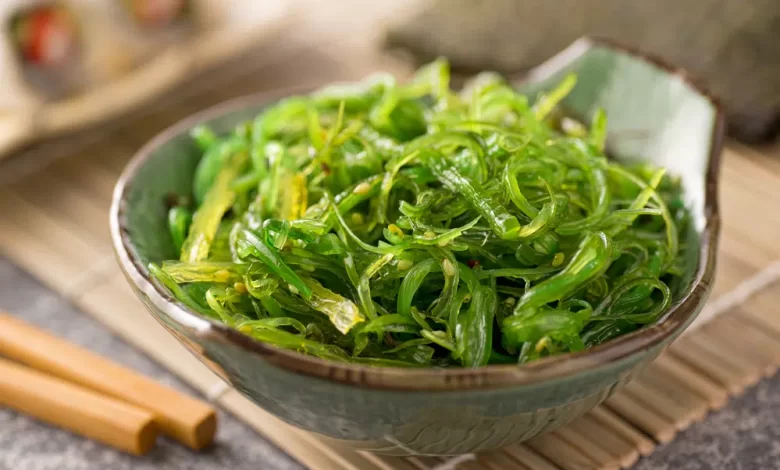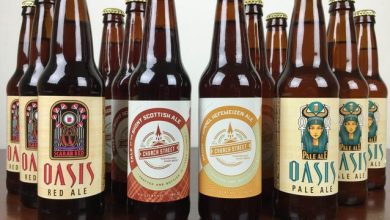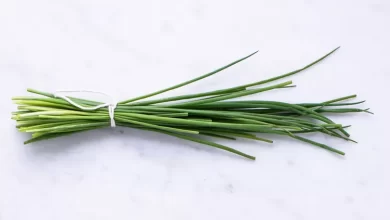Kelp Nutrition Facts and Health Benefits

Kelp is a brown seaweed (Laminaria), which grows in underwater forests. Seaweed can grow in almost any type of water, whether it is fresh or salt, but kelp only grows in saltwater. It’s usually found along cold, rocky, nutrient-rich coastlines. About 30 varieties of kelp exist. Kelp is a source of nutrition for many sea creatures. This leafy seaweed is also consumed by humans because it has a high nutritional value.
Since hundreds of years, kelp and other edible seaweeds have been an important part of the Japanese diet. This food is now common throughout the world due to the popularity and availability of kelp noodle.
Kelp Nutrition Facts
USDA nutrition facts for 1 cup (15g), dried seaweed. 1
- Calories: 44.7
- Fat:0.6g
- Sodium: 86.2mg
- Carbohydrates: 7.9g
- Fiber:0.8g
- Sugars:0.5g
- Protein:4.8g
Carbs
Carbohydrates are low in dried kelp, as there are only 8 grams per cup. Under 1 gram of this is sugar and fiber.
Fats
Kelp contains very little natural fat, although it can be added to the dish during cooking.
Protein
The dried kelp contains almost 5 grams protein per cup.
Vitamins and Minerals
Kelp is rich in vitamins A, C, E, K, folate, B12 and B6, as well as minerals. It contains small amounts of thiamin and riboflavin.
Iodine is a mineral found in large amounts in kelp. Calcium, magnesium, sodium, phosphorus, and iron are also minerals.
Health Benefits
Kelp has a high nutritional value, as it is low in calories, but contains fiber, vitamins and minerals that offer a variety of health benefits.
- Vitamin C is an antioxidant that may help to prevent illness and disease
- Calcium: Helps with bone health
- Iron is important for healthy blood and disease resistant
- Magnesium is essential for hundreds of biochemical processes in the body
- Iodine is necessary for thyroid hormone production and to maintain healthy metabolism
Promotes Weight Loss
Seaweed is low in calories and fat. One of the antioxidants found in seafood, fucoxanthin, may also help with weight loss. Seaweed is low in fat and calories. Fucoxanthin, an antioxidant found in seafood, may help people lose weight.
Reduce Cancer Risk
Three compounds found in seaweed may have some promise for fighting cancer, but more research is required.
- Fucoidan is a fiber that can be found in seaweed
- Polyunsaturated fat acids
- Polyphenols (antioxidants)2
Low Blood Pressure
Fucoidan, fucoxanthin and other compounds may help those with high blood pressure. Seaweed is a great source of folate, which has also been shown to maintain healthy blood pressure.
Allergies
If you have symptoms of food allergies after eating kelp, such as swelling or rash around your mouth, consult your doctor.
Adverse effects
Kelp can be consumed in amounts found in foods. The high levels of iodine in kelp and the potential heavy metals can be harmful to your health, especially if you take it as a supplement.
The amount of iodine you should consume daily depends on your age and gender. Most adults need 150 micrograms per day. The maximum amount of micrograms that can be consumed per day is 1,100.
It is difficult to know how much iodine will be consumed by eating kelp or kelp-based products, as the content varies. Too much iodine consumption can lead to serious health problems, including thyroid cancer, goiter and thyroid gland inflammation. Heavy metal exposure can also affect thyroid function. 5
Health experts recommend that women who are pregnant, breastfeeding, or have thyroid or kidney disorders such as hyperthyroidism avoid consuming kelp.
Variety
Kombu is one type of kelp. The Japanese word for Kelp is Kombu, which usually refers to Saccharina Japonica species.
Many specialty stores sell kelp, both raw and dried. You can find kelp noodles in supermarkets and grocery stores in the Asian section. Online, you can buy kelp or kelp noodles.
The nutrition of kelp noodle will vary depending on the brand and recipe that you choose. Brands that contain only kelp and water (a natural hydration ingredient extracted from brown seaweed), will have fewer calories, carbs and fats while still providing some of the nutritional value of plain kelp.
Food Safety and Storage
As long as you don’t open them, dried kelp or kelp noodles can be stored in the cupboard for up to six months. Fresh or rehydrated Kelp can be kept in the fridge for a couple of days.
Prepare Yourself
Raw kelp is great in salads and stir-fries, but can also be added to smoothies. When cooking dried beans, you can add dried kelp to the pot to improve their flavor and reduce gas production. You can add it to soups or broths to enhance the flavor.
You can eat kelp noodles either cold or hot, but they should be rinsed before eating. Add them to salads or use them as an alternative to pasta. You can also toss them with veggies and protein.
Verywell Fit only uses high-quality sources to back up the facts in our articles, including peer reviewed studies. Learn more about our editorial process to learn how we ensure that our content is accurate, reliable and trustworthy.
- Seaweed, dried. FoodData Central. U.S Department of Agriculture
- Cherry P, O’Hara C., Magee P., McSorley, E., Allsopp P., Risks and Benefits of Consuming Edible Seaweeds. Nutr Rev. 2019;77(5):307-329. doi:10.1093/nutrit/nuy066
- Admassu, H., Gasmalla MAA., Yang R., Zhao W. Bioactive Peptides Derived from Seaweed Protein and Their Health Benefits: Antihypertensive properties, antioxidants, and anti-diabetic properties. J Food Sci.2018;83(1):6-16. doi:10.1111/1750-3841.14011
- Seaweed allergy. Thomas I, Siew LQC. Watts TJ. Haque R. J Allergy Clin Immunol Pract.2019;7(2):714-715. doi:10.1016/j.jaip.2018.11.009
- National Institutes of Health Office of Dietary Supplements Iodine.
Kelp has many health benefits.
1. Cancer Prevention
According to research, kelp consumption is strongly linked with cancer prevention. The plant contains many compounds that can prevent prostate and lung cancer. These substances are not only helpful in slowing down the growth of cancerous cells but also in preventing breast and colon cancer from spreading throughout the body.
It is well-established that kelp reduces the risk of breast and ovarian cancer in Japanese women, as these cancers are rare.
Kelp, which is rich in vitamin C, reduces damage from free radicals. Fucoidan is also present in kelp, and this induces the apoptosis of cancerous cells. In simple words, consuming kelp destroys cancer cells.
2. Maintains pH Balance
Kelp is a food that is alkaline. It is a way to naturally maintain a healthy acid-base equilibrium in the body. This is beneficial for digestion and many bodily functions.
3. Enhances Bone Density
Kelp contains many minerals, including calcium, zinc, copper and manganese. This gift from nature is great for people with weak or damaged bones as it contains the necessary minerals to promote bone health.
This prevents symptoms caused by osteoporosis and mineral deficiencies.
4. The Best Source of Protein
Kelp contains more than 15 different amino acids. It is therefore extremely helpful for increasing the protein in our bodies. It not only regulates cell growth but also helps to heal wounds and develop muscles. Add some kelp into your diet if you’re looking for a natural source of proteins.
5. RBC Production Helps
Kelp can also stimulate the production of red cells, a fact little-known. Kelp is rich in chlorophyll which is similar to blood. Consuming kelp improves the performance of all organs in our body.
6. Replace Salt with This Alternative
Salt is a must when cooking. Too much salt can also be harmful. Kelp extract is a great replacement for salt because it is high in iodine. It is the same taste without the harmful effects of salt.
Kelp is a great alternative to sodium if you are experiencing serious heart problems or want to reduce your intake.
7. Boosts Immunity
In the absence of an effective immunity system, our body is vulnerable to external infections and diseases. Kelp strengthens our immune system with essential vitamins and minerals. Consuming it can help boost immunity if you suffer from a mineral or vitamin shortage.
Its potassium binds to all the sodium in your body, and it flushes it from your system. Kelp is also good for your heart.
8. Managing Menstruation symptoms
Women often suffer from painful PMS symptoms. You can stop the fatigue, cramps and anemia during this period by eating a superfood rich in minerals such as kelp.
9. Weight Loss Aids
Kelp is a great option for people trying to lose weight. The plant is effective in weight loss thanks to fucoxanthin. Its effect is enhanced when combined with other elements, such as pomegranate seed oil.
10. Fighting Diabetes and Blood Disorders
Fucoidan, a compound found in brown alga like this one, is effective against several types of blood disorders. This includes high blood pressure. It also helps to relieve ischemic disease.
Diabetes patients will also benefit from the lower blood lipids.
11. Anti-Inflammatory
It is a great source of antioxidants. Kelp is therefore recommended for people who are looking to reduce chronic inflammation and prevent other diseases that can be caused by prolonged inflammation.



